Auschwitz guard trial: Oskar Groening admits 'moral guilt'
- Published
Oskar Groening interview from a 2005 BBC documentary
A 93-year-old former Nazi SS guard, known as the "Bookkeeper of Auschwitz", has admitted he is "morally" guilty.
Oskar Groening spoke at the beginning of his trial for being an accessory to the murder of at least 300,000 Jews at the concentration camp.
He described his role of counting money confiscated from new arrivals and said he witnessed mass killings, but denied any direct role in the genocide.
If found guilty he could face three to 15 years in prison.
Addressing the judges, Mr Groening also said: "I ask for forgiveness. I share morally in the guilt but whether I am guilty under criminal law, you will have to decide.''
This is expected to be one of the final trials for Nazi war crimes.

At the scene: Jenny Hill, BBC News, at the court in Lueneburg
Oskar Groening looked frail as he entered the courtroom leaning on a walking frame. But his voice was strong and steady as he spoke for nearly an hour.
Four survivors from the notorious death camp faced him across the room. Much of his testimony described his attempts to achieve his ambition of being an SS "executive", to work as a bookkeeper for the Nazis.
But there were haunting moments too; for a little while we saw the horrors of Auschwitz through his eyes.
The survivors watched him impassively but their younger relatives shook their heads in disbelief as he recounted his arrival at the camp as a young SS guard. He'd been plied with vodka by officers there, he said.
He even described the vodka bottles. As they drank the officers told him that the camp was for deported Jews. That those Jewish prisoners would be killed and disposed of.
Later, he pulled out a water bottle: "I'll drink from it like I drank from those vodka bottles in Auschwitz."

'I saw the gas chambers'
The nonagenarian has achieved notoriety as one of the few Germans to speak out about their role in the genocide, a decision he say he took to stop Holocaust deniers.
"I saw the gas chambers. I saw the crematoria," he told the BBC in the 2005 documentary Auschwitz: the Nazis and the "Final Solution".
"I was on the ramp when the selections [for the gas chambers] took place."
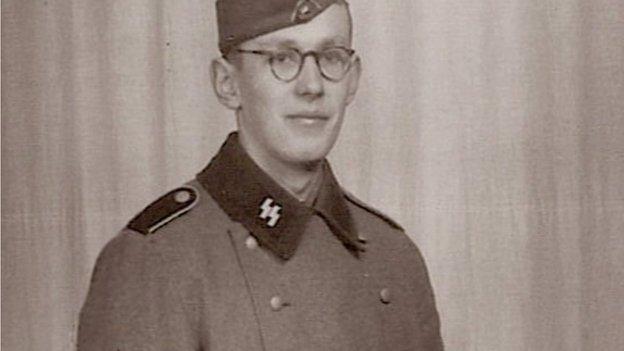
Oskar Groening signed up to the Waffen SS and arrived in Auschwitz in 1942
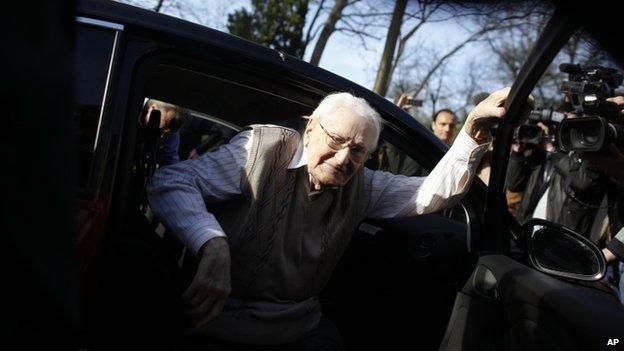
Holocaust survivors will give evidence against Mr Groening in court
Profile: Oskar Groening, 'Bookkeeper of Auschwitz'
Mr Groening, who began work at Auschwitz aged 21, has always maintained that his role as a guard was not a crime.
"If you can describe that as guilt, then I am guilty, but not voluntarily. Legally speaking, I am innocent," he told Der Spiegel in 2005.
Mr Groening served at Auschwitz between May and June 1944, when some 425,000 Jews from Hungary were brought there and at least 300,000 almost immediately gassed to death.
Charges brought against him in the 1980s were dropped because of a lack of evidence of his personal involvement.
However, following a recent ruling, prosecutors believe a conviction may be possible simply because he worked at the camp.
"What I hope to hear is that aiding in the killing machinery is going to be considered as a crime," Auschwitz survivor Hedy Bohm told Reuters news agency. "So then no one in the future can do what he did and claim innocence."

Auschwitz-Birkenau death camp
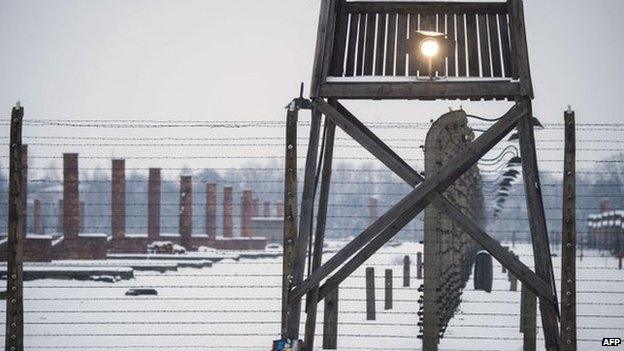
Construction began in 1940 on site that grew to 40 sq km (15 sq miles)
About one million Jews were killed at the camp
Other victims included Roma (Gypsies), disabled people, homosexuals, dissidents, non-Jewish Poles and Soviet prisoners

- Published15 July 2015
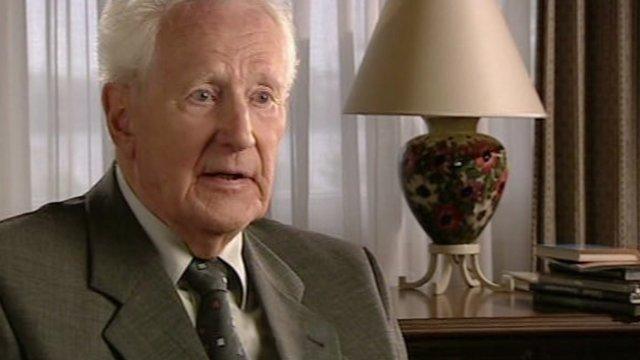
- Published2 February 2015
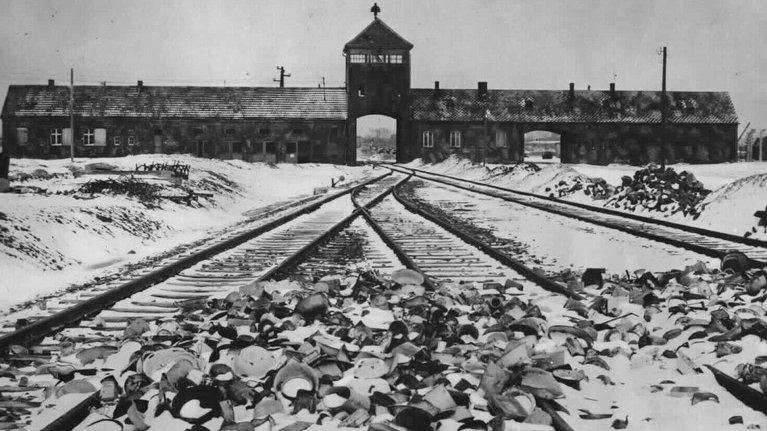
- Published23 July 2013
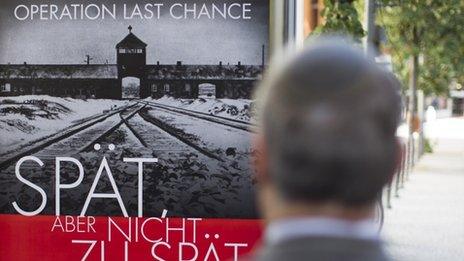
- Published17 March 2012